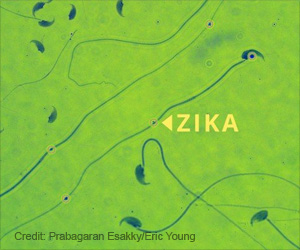
In all, 19 of a total of 131 children (14.5 percent) had at least one of the three abnormalities.
From September 2015 to June 2016, Rio de Janeiro, Brazil, experienced an epidemic of Zika virus, a then relatively unknown mosquito-borne virus that was later linked to an unusually high number of cases of microcephaly, a condition characterized by an abnormally small head, and other neurological abnormalities in infants.
The researchers conducted at least one imaging exam (using transfontanelle cerebral ultrasound, computerized tomography or magnetic resonance imaging); an eye exam; a standard screening called Bayley III, which measures infants' cognitive, language and motor skills; and a brainstem evoked audiometry test, which diagnoses hearing loss in newborns and young children.
The researchers note, however, that brain imaging failed to predict severe neurodevelopmental delays in 2 percent of cases. Also, 16 percent of infants who had abnormal brain images early in life had normal cognitive, language and motor skills by 12 to 18 months of age.
Source-Eurekalert










